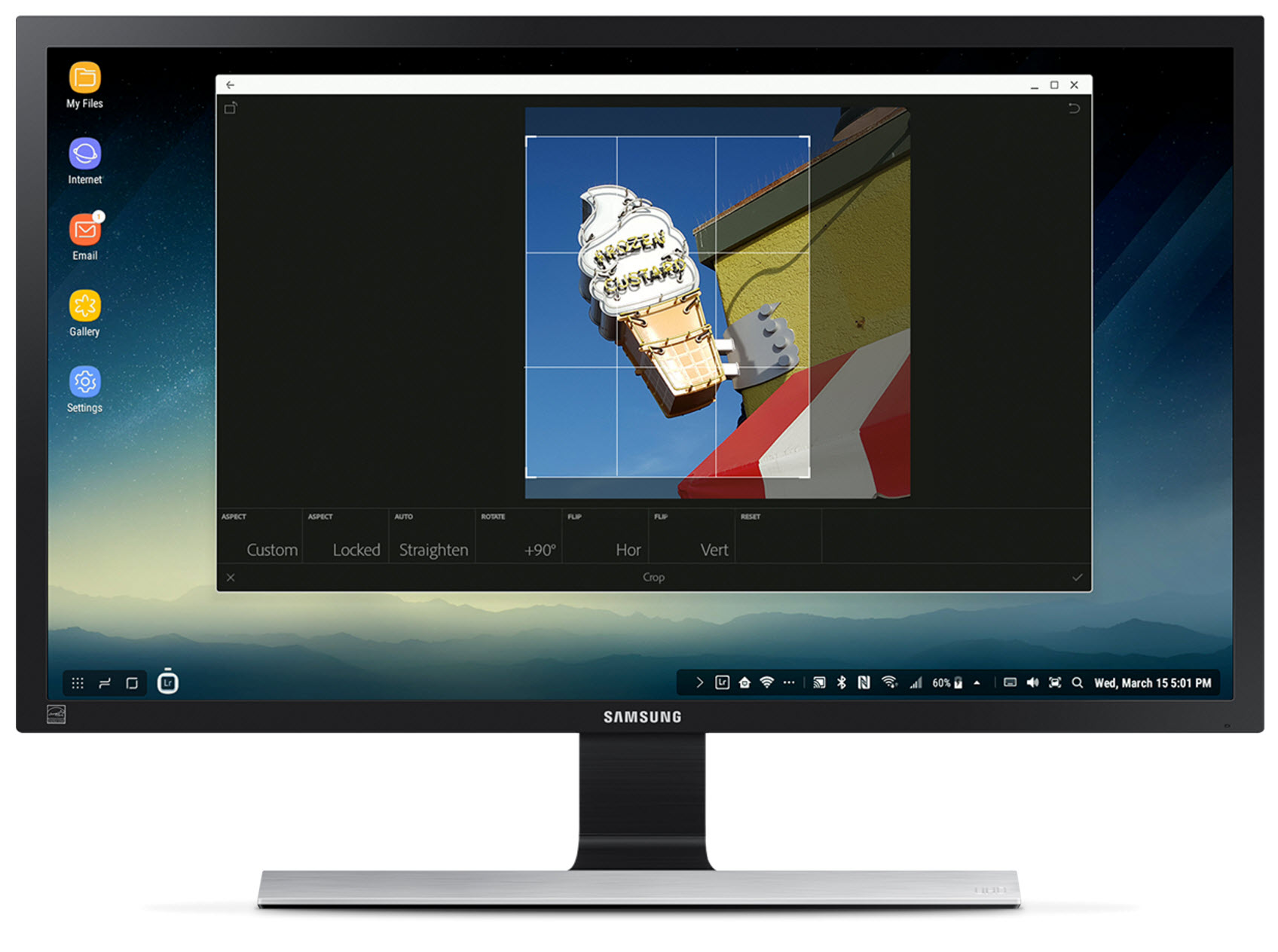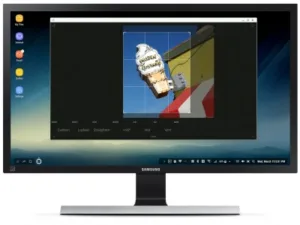
This week saw the delayed release of the Samsung S8. It’s, no question, a slick device that does a lot, but it’s hard to see many S7 owners thinking it would be worth an upgrade, the problem that has hit the phone industry for the last several years. I have an S6, and being very careful about my expenses, I own it, with a SIM-only contract. I can see that the S8 might be a bit nicer, but really, apart from the memory limitation ( I have the 32GB version, which seemed plenty, but that version has no expansion and I’m always running out of storage), the phone seems fine. Having taken it out of the protective case, it does looked decidedly dated against the S8, but it’s still ‘good enough’. I think I’ll have to wait for it to die or be dropped!
I’m slightly surprised that Samsung hasn’t increased the pixel density of the display noticeably, so the Gear VR experience is not going to be much better than with the S7. Of course, the better CPU and GPU should help drive better frame rates and reduce the heat and extend the lifetime, but that won’t make a big difference. I think we have to assume that the systems are just not fast enough, yet, to properly drive an UltraHD display at a decent frame rate. That’s going to take another turn or two around Moore’s Law, it seems.
I’m intrigued by the support by Samsung for an external display dock. Samsung confirmed that the USB Type-C connector on the new phone supports the DisplayPort Alt-mode, although the DeX docking system converts this to HDMI to connect to a monitor. The specification also says that it supports UltraHD at 60fps – that’s cool and it will be interesting to see what third parties do in terms of docking. I have been saying for a number of years that monitor makers need to exploit the mobile revolution, but so far, the success has been limited.
Samsung has a dock, but has not, at least not yet, announced a ‘shell’ add-on with a big battery, a display and a keyboard to turn the S8 into a notebook PC. Companies such as Miraxess and Sentio (I’m still waiting for my Superbook!) have developed these devices as has HP (although I have been very critical of HP’s pricing), but nobody has really had a hit with this kind of device so far. Given Samsung’s understanding of the notebook business, I’m surprised not to see some kind of device, which I would have thought would do well in the developing markets. Of course, it could be that the developing markets are less likely to buy a phone of the kind of price that the S8 has. It may take a couple of years for the level of performance to move down to lower-priced handsets.
The Samsung DeX environment looks distinctly Windows-like and there are versions of the main Office Apps available for it. I’ll have to see if I can get hold of a system for testing. If you have tried it and have feedback, please contact me at [email protected] or click below.
Bob
 Samsung’s DeX environment looks distinctly Windows 10-ish. Click for higher resolution.
Samsung’s DeX environment looks distinctly Windows 10-ish. Click for higher resolution.

